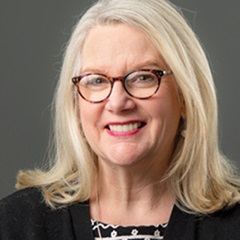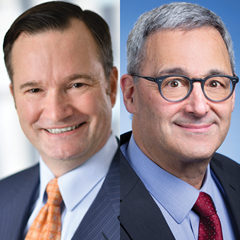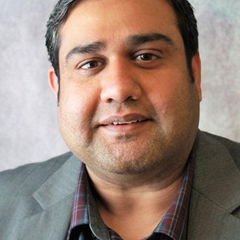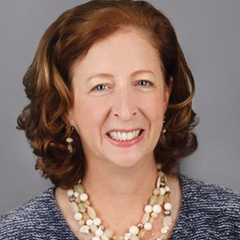
5 Examples of How Leaders Can Bring the Organization’s Mission and Values to Life
Weave the organization’s mission in meetings, new employee orientation, governance, performance feedback to stakeholders
Read More
Weave the organization’s mission in meetings, new employee orientation, governance, performance feedback to stakeholders
Read More
Others have expectations of how we will perform and behave. Our goal should be to consistently exceed these expectations
Read More
Tina Freese Decker, FACHE, is president and CEO of Michigan-based Corewell Health. She earned a master’s degree from the University of Iowa and a bachelor’s degree from Iowa State University. In October 2022, Corewell Health became the new name after the integration of Beaumont Health and Spectrum Health. Freese Decker led the integration, saying, “We brought together two leading health systems to form a new system committed to helping everyone be well so that they can live their healthiest life possible.”
Read More
Healthcare will experience unprecedented change in the age of AI. This shift promises to redefine patient care and operational efficiency, ushering in a new way of practicing medicine. However, AI’s potential will not be realized without access to high-quality data. To guide leaders on this crucial journey, we outline actionable steps for cultivating a data-driven, AI-ready culture of care, presenting 10 key performance indicators for extracting the value of health data. These KPIs encompass critical areas such as data literacy, data-informed decision-making, accessibility and security.
Read More
Danielle Walsh, MD, FAAP, FACS, a professor of surgery and vice chair of Surgery for Quality and Process Improvement at the University of Kentucky College of Medicine in Lexington, believes there are two big myths about using AI in healthcare: that physicians don’t want AI and that patients don’t want AI.
Read More
With as many as five generations currently in the workforce, hospitals and healthcare systems, like all employers, can build a sense of belonging that takes into account all age groups
Read More
As a management consultant, Jennifer Tomasik, FACHE, vice president and principal with CFAR Inc., sees opportunity in how organizations support leadership transitions.
Read More
It is essential that healthcare CEOs have a deep understanding of a broad range of topics, from the quality of clinical care to the competitive environment, and how those factors impact financial sustainability.
Read More
Investing in our teams’ well-being has never been more important. The entire healthcare industry continues to be challenged by serious staffing issues, and Hackensack Meridian Health is no exception.
Read More
Cleveland Clinic has embraced a high-reliability concept called “deference to expertise.” “We recognize caregivers and patients are the experts here,” says Anthony Warmuth, FACHE, executive director for clinical transformation.
READ MORE
As hospital leaders consider how to innovate and improve patient care in the middle of lingering workforce shortages, they might consider what UCSF Health’s Robert Wachter, MD, calls a “digital-first” approach to care redesign.
READ MORE
The critical role of the supply chain function in delivering high-quality patient care has once again come to light as U.S. hospitals, health systems and other care facilities continue to deal with unpredictable product shortages and quality issues.
READ MORE
Whatever part of the industry or profession we have worked in, chances are we unwittingly developed a second family—a community. This group’s contributions, influences, troubles and victories touched our life in significant ways. I would venture to guess that whether we believed these contributors were a part of our direct circle or members in our periphery, we became attached to their hopes, dreams and accomplishments, as well as their disappointments.
READ MORE
Ensuring that diversity, equity and inclusion becomes part of a health system’s bloodstream—and not just a program or a box to check—is vital to effective leadership that ensures provider teams feel well cared for, want to stay, and perform at the top of their abilities, system leaders say.
READ MORE
This is a challenging time for companies across the board and particularly in healthcare services, contending with an uncertain economic backdrop, labor market challenges and ever-evolving patient preferences.
READ MORE
It’s 7 a.m., April 13, 2022, at Sarasota (Fla.) Memorial Healthcare System, and an overflow unit is opening as planned.
READ MORE
When many people hear the word “coach,” they tend to think of a sports coach, who motivates players to improve their own and their team’s performance, often through providing advice and direction.
READ MORE
When leadership at the very top of the organization—governance—makes health equity a priority, improved patient safety outcomes is the result, say experts.
READ MORE
The leadership of Providence Alaska in Anchorage was concerned that the movement to value-based care could be incongruent with the perspectives and perceptions of its largely independent clinical staff. The future success of the system was anticipated to be mostly predicated on how tightly aligned it could be with its physicians.
READ MOREPrior to joining the Pennsylvania Rural Health Model, Endless Mountains Health System, a 25-bed critical access hospital in Montrose, located some 40 miles north of Scranton, had seen year-over-year declines in revenues. “We were seeing a declining population in our rural service area and declines in reimbursement,” says CEO Loren Stone, FACHE. “We were looking for a way to stabilize our operating and financial environment.”
READ MORE
In the more than eight years since the inception of Summit Health’s transitional care management program, several “tricks of the trade” have become apparent.
READ MORE
This web extra goes into more detail on the seven phases of authenticity leadership and building trust that is highlighted in the Careers column in this issue.
READ MORE
Even before the pandemic, economic sustainability was a challenge for community and rural hospitals, given the operational and financial issues they faced daily. The pandemic’s impact has made it even tougher for many to remain fiscally sound. In this environment, community-based hospitals need to do something different, not just better, to attain long-term sustainability.
READ MORE
The benefits of using genomic science in population health management may be growing increasingly clear to healthcare providers as the data accumulates, but do patients automatically buy in to the approach, and what if they don’t?
READ MORE
Recently retired physicians, nurses, respiratory therapists and others should be able to easily take on the roles they successfully managed pre-retirement. For those who have been retired for a longer time, creative integration can allow returning personnel to assume less rigorous roles that still provide relief to current physicians and staff.
READ MORE
Isolation created by social distancing is taking its toll on many healthcare workers.
READ MORE
Before the pandemic, the desire to help all patients receive the right care at the right time in the right place fueled a dramatic increase in the use of telehealth by hospitals, rising from 35% of hospitals in 2010 to 76% in 2017, according to the American Hospital Association.
READ MORE
The events of 2020 shined a glaring light on racial disparities and inequities in our country and healthcare that persist as we begin 2021. Racism has been declared a public health crisis.
READ MORE
The COVID-19 pandemic is highlighting an uncomfortable fact the healthcare industry has struggled with for years: the American health system, designed with the best of intentions, sometimes fails those who need it most.
READ MORE
With the world’s attention turned to COVID-19 and its devastating (and as yet unknown) consequences, it’s easy to allow the current crisis to delay progress on the work that many of us have been leading for decades to champion gender equity and anti-racism.
READ MORE
Six hospitals led by ACHE Members and Fellows were among 103 organizations worldwide recently recognized by the International Hospital Federation’s Beyond the Call of Duty for COVID-19 Program.
READ MORE
Since the start of the pandemic, leadership teams at provider organizations across the country have had to make changes to the way they meet. Some teams have worked virtually the entire time, some have worked via a combination of in-person and virtually, while others have continued to meet in-person but with new social distancing practices in place.
READ MOREAfter the redesign of two patient care floors at the University of Chicago Medicine’s Center for Care and Discovery, staff conducted a post-occupancy evaluation in April 2018, seeking feedback about the medical center’s general design and comparing the two newly designed floors with three existing inpatient floors.
READ MORE
Providing the capabilities for staff to work from home and using EHRs to their full capabilities are two ways organizations can take advantage of information technology.
READ MORE
In the midst of the COVID-19 crisis, the healthcare field has the will and momentum to continue to expand telehealth services like virtual visits to their patients, says John Kravitz, CIO at Geisinger, Danville, Pa., and 2020 and 2021 chair of the College of Healthcare Information Management Executives board of trustees.
READ MORE
Perhaps one of the most-talked-about aspects of IT during the pandemic has been virtual health. It seems nationwide use of telemedicine has been ignited, knocking down previous obstacles. Many healthcare organizations, it seems, are making their plans accordingly.
READ MOREThroughout the country, IT has played a crucial role in helping provider organizations navigate the COVID-19 crisis. Organizations that had strong IT foundations already in place prior to the pandemic benefitted greatly.
READ MORE
Healthcare IT has played a significant part in helping healthcare providers manage the COVID-19 crisis, with many innovations being implemented on short notice and at rapid speed. Here are some examples of IT innovations that have been used successfully.
READ MORE
How has COVID-19 affected your organization? We rely on volume- and value-based payments, and our outpatient volume has dropped 30% since March due to COVID-19. Rural health systems traditionally have fewer resources, and given the added strain of the pandemic, we had to strategically adapt to the new environment to survive.
READ MORE
Healthcare executives can do a lot to support their physicians on the front line of the COVID-19 crisis. Experts recommend the following strategies for helping physicians manage the physical, emotional and financial toll of battling the virus.
READ MORE
As this unprecedented event continues to impact our communities, ACHE will regularly share news about our members on the front lines. These news stories are intended to highlight the amazing work our leaders are doing as they confront the novel coronavirus and the disease caused by it, COVID-19.
READ MORE
The COVID-19 pandemic has had a significant impact on several aspects of healthcare, including the workforce.
READ MOREThough many healthcare leaders believe just culture is essential to the success of an overall high-reliability safety strategy, some question whether the model can fulfill its potential.
READ MORE
Abington-Jefferson Health, Abington, Pa., a two-hospital system that became part of 14-hospital system Jefferson Health in 2015, began its patient safety journey 20 years ago.
READ MORE
Healthcare Executive talks with Victoria W. “Tori” Bayless, FACHE, CEO, Luminis Health, Annapolis, Md., on the importance of health equity and her organization’s approach to ensure disparities in healthcare quality and access are eliminated.
READ MORE
Healthcare Executive talks with Marc L. Boom, FACHE, FACP, president and CEO, Houston Methodist, Texas, on how his organization is employing innovation in their strategies and operations to improve patient outcomes, engage their staff and clinicians, and provide more efficient and positive results.
READ MORE
Healthcare Executive talks with Nick Macchione, FACHE, director, San Diego County Health & Human Services Agency, on the importance of health equity and his organization’s approach to ensure disparities in healthcare quality and access are eliminated.
READ MORE
Healthcare Executive talks with Ninfa M. Saunders, DHA, FACHE, president/CEO, Navicent Health, Macon, Ga., on how her organization is employing innovation in their strategies and operations to improve patient outcomes, engage their staff and clinicians, and provide more efficient and positive results.
READ MORE
Healthcare Executive recently asked four CEOs what skills and qualities they thought were most important for healthcare leaders to guide their organizations in the next decade. Here is what they had to say.
READ MORE
The three female healthcare executives featured in the November/December issue of Healthcare Executive shared their advice for women on advancing in their careers.
READ MOREMany healthcare leaders have plans and goals for the direction of their career, but fail to think about what comes after.
READ MOREThe three institutions profiled in September/October issue of Healthcare Executive provide their advice and recommendations for providers that may be newer to the telemedicine journey.
READ MORE
What do we mean when we say innovation? Innovation is a newly implemented, more efficient and better process for solving a problem or meeting a need. It must also be measurable.
READ MOREAchieving the break-even point on Medicare is not only an important goal in itself for many healthcare organizations in need of cost transformation, but also a driver of overall efficiency and cost savings.
READ MOREIt’s extremely important for leaders and other members of healthcare organizations to understand what innovation is—and what it isn’t.
READ MORETo encourage employees to not only identify but follow through on creative ideas for improving customer relationships, Southcentral Foundation, Anchorage, Alaska, rolled out a decentralized approach to innovation.
READ MOREOpioid-related safety events can be a deadly problem for healthcare organizations, according to ECRI Institute, Plymouth Meeting, Pa.
read more
